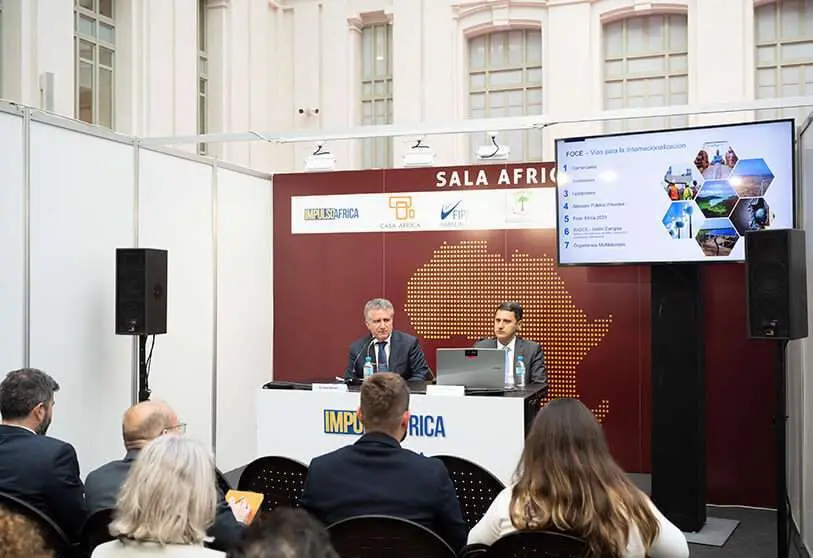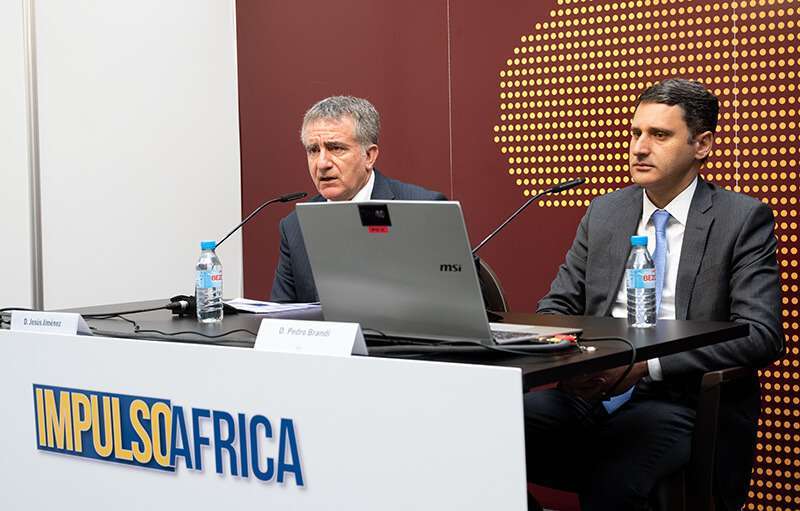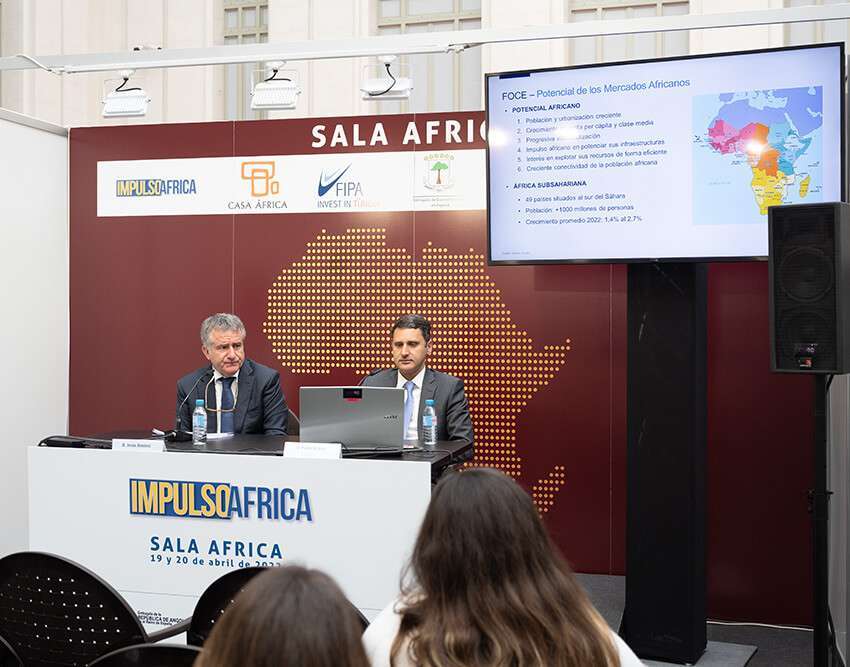Africa: a strategic and priority partner for Spain

"There are more urban metropolises in Sub-Saharan Africa than in the whole of Eastern Europe or the United States, and we must take advantage of this". This was the beginning of one of the most unique speeches at the Internationalisation Week because it dealt with a part of Africa that has often been forgotten by the vast majority of companies: Sub-Saharan Africa.
With the title "How can a Spanish company successfully internationalise in Sub-Saharan Africa?", the IMEX-Madrid 2022 conference was opened by FOCE, the project integration company specialised in offering infrastructure solutions, financial advice and strategic intelligence in emerging markets.
The CEO of this company, Jesús Jiménez, began his presentation by mentioning the potential of African markets to offer the reason to invest, a question that was asked by the businessmen present at the Fair. The growing connectivity of the African population, the interest in promoting its resources and boosting its industrialisation and the growth of per capita income are just some of these potentials on the continent, as for Jiménez the main reason for investment in Africa is to be found in demographic growth and urbanisation. This uniqueness has been presented, together with increasing industrialisation, as the key elements creating a demand for investment in the liberal market.

However, any internationalisation entails risks. "We have to try to be aware of the studies on risk perception and encourage our teams to break with this. We entrepreneurs deal with these risks on a daily basis," said the CEO of FOCE, while insisting on international support as a fundamental element to break through these threats. "The risk is overcome in the first weeks of approaching a market and then becomes another factor", he added.
In any case, and in order to understand more easily the first steps of a company to open up to the foreign market, Jesús Jiménez mentioned the possible ways of internationalisation. Commercial, investment, tenders and public-private alliances are all necessary to successfully open up to trade. And it is these common institutional agreements that also help companies to progress, such as those achieved by the African Union and the European Union, which have the advantage of bringing together public administrations in order to radiate commercial expansion strategies, as is the case with Foco Africa 2023.
Other aspects, such as having local partners and creating a network of contacts, are just as important. "Nowadays, it is increasingly important to be accompanied by international partners who are established in this part of Africa," Jiménez defended. So much so that he saw this premise as the precursor to considering competing companies "not as competition, but as allies, because they complement each other".

The bilateral and multilateral commitment to African markets has also been a point of interest. Private capital flows to Africa and the framework of regional integration are examples of this, but although the path is open, Jiménez affirmed that there is still much work to be done at the institutional level to support companies more and better. "It is necessary to demand more institutional presence and support resources in stimulus relations such as tax exemptions," he said. The speaker gave as an example the number of trips made by the French President, Emmanuel Macron, to Africa, which "in 5 years are more than all our ministers in 30".
Nevertheless, and with the parenthesis in relation to the institutional, Jesús Jiménez encouraged all businessmen to venture into the Sub-Saharan African market because "there is already political stability and financial and legal security in most of the countries of the African continent".
Another speaker at the same conference was the financial director of FOCE, Pedro Brandi, who focused technically on financial instruments to avoid problems such as default, which is considered the greatest market risk in this part of the continent. Brandi mentioned instruments to be taken into account by entrepreneurs such as Afreixbank guarantees, but insisted that "each operation is a tailor-made suit because each country and company has its own peculiarities".










